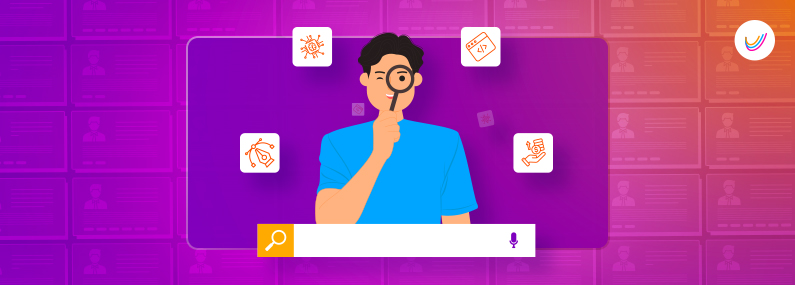Personalised search is reshaping the way companies discover and hire top talent. This new approach has brought in an unprecedented level of precision and efficiency in the hiring process.
It’s been a game-changer in reducing costs, tapping into a diverse talent pool and scaling hiring efforts. Let’s explore the six ways personalised search has impacted recruiting.
Top 6 Ways Personalised Search Has Changed Hiring
1. Evolved Candidate Matching
Personalised search, the professional world’s matchmaker, leverages advanced analytics and machine learning for precise candidate-job matching.
This not only speeds up the hiring process but ensures a better fit between the candidate’s skills and the company’s needs. It’s a win-win situation where recruiters spend less time sifting through resumes, and candidates find positions that align better with their expertise.
2. Bye Bye, Bias. Welcome, Diversity
One of the standout advantages of personalised search is its capacity to reduce bias in hiring.
A good example of this is Unilever. Since 2017, the MNC has used AI to screen candidates, emphasising skills and experiences. According to the company, this approach has notably increased diversity in their management roles, creating a more inclusive environment and driving innovation.
3. Dynamic Talent Pooling
The era of static talent database is gone. Now, dynamic talent pooling is in — it involves continuously gathering and refreshing your existing talent pool.
The first step is maintaining data-driven profiles for potential candidates. Regular engagement is crucial here, whether through emails, personalised communication, social media or events.
Another important aspect of talent pooling is looking within the organisation to fill future roles.
IBM has been a pioneer in dynamic talent pooling since the early 2010s. By identifying future skill requirements, they have achieved more effective engagement with potential candidates, improved internal talent development and gained a significant competitive advantage.
4. Cost-Effective Recruitment with Higher Retention
Personalised search streamlines recruitment, saving time and reducing costs.
By closely aligning candidates with roles that fit their career goals, companies experience fewer turnovers.
In 2020, Walmart, the US-based retail giant, introduced an AI-supported hiring system for its hourly in-store staff, aiming to cut hiring and training costs, expedite recruitment, and enhance retention. This data-driven approach was designed to streamline hiring, minimise bias, and improve overall outcomes.
5. Global Reach for Top Talent
Since the mid-2010s, Google has been at the forefront of using AI-based tools for global talent acquisition. Google’s approach has provided them access to a diverse and expansive talent pool, beyond geographical barriers.
As a result, Google has cultivated a multicultural and highly skilled workforce.
By focusing on core skills, companies can now connect with qualified candidates globally — something that’s gotten easier with remote work.
This approach infuses organisations with a rich variety of skills and experiences, essential for building a truly global workforce.
6. Continuous Feedback Loop in Recruitment
Recruitment is evolving from a one-way communication into a dynamic conversation, thanks in part to technologies like Personalised Search. This system continuously learns from a candidate’s interactions, fine-tuning the job suggestions it provides.
For candidates, this means the more they interact with the system, the more tailored the job suggestions become to their skills and preferences.
For recruiters, this translates into a pool of high-intention candidates, significantly increasing the chances of finding the perfect fit.
In conclusion, personalised search is not just a technological advancement but a fundamental change in how we connect talent with opportunities. It is paving the path towards a future where the recruitment process is faster, accurate, and closely tailored to the needs of both employers and job seekers.




